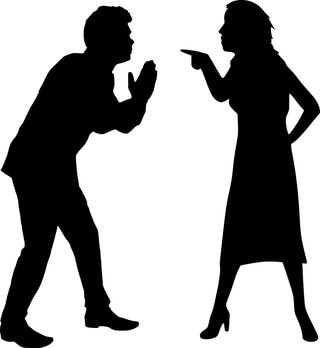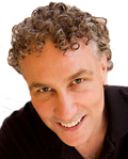Philosophy
A Restorative Secular Philosophy That’s Applicable to Everyone
A Personal Perspective: Jesus's ideas have been hiding in plain sight.
Posted November 10, 2021 Reviewed by Gary Drevitch
Key points
- Jesus taught a secular philosophy (not his theology) that is applicable to everyone.
- This ethical system provides a new way of judging right and wrong.
- Rules deprive us of consciously knowing we are doing good.
- When people have a feeling of moral confidence, they do the right thing nearly every time, creating a dense web of safety.

I grew up in a religious Christian household, but my logical mind couldn’t accept the supernatural stuff. So, as soon as I was old enough to make my own decisions, I stopped attending church.
Recently I came across a reference that Jesus believed in questioning authority and the status quo. That got my attention, because for nearly three decades I have been writing and lecturing on innovation and creative-thinking, and questioning authority is a key component of creativity. My interest was piqued. In September, I listened to Jesus’ Lost Philosophy, a podcast by author Paul Rosenberg in which he discussed how Jesus taught a secular philosophy (not his theology) that is applicable to everyone. It is an ethical system that offered a new way of judging right and wrong. As I listened, I realized that if everyone (or a majority of people) practiced this philosophy, it could transform humanity and create lasting peace, a safer world, and (to borrow a phrase) more liberty and justice for all.
Rosenberg explained how this new system has been lost even though it has been sitting right out in the open in the pages of the New Testament. I was so excited by his insight that I asked him for an interview.
An Ethical System Based on Three Simple Principles
I asked Rosenberg what Jesus meant by the kingdom of heaven, and he replied, “The way of the better realm is here now. I can’t overstate the importance of the fact that Jesus always called this ‘Good News,’ and he really meant good news, it was like [he said], ‘This is a great thing, look at this, it's awesome... you can live this way now.’” He shared with me that this model of morality turns on a few simple principles:
- A person knows what they like and don’t like.
- By doing to others things that they don’t like themselves, they condemn their own actions.
- By doing to others things they would like themselves, they justify their actions (which you may recognize as the Golden Rule).
It was Jesus’ contention that laws and rules take away a person’s knowledge and experience and, subsequently, their confidence in their own goodness and ability to do the right thing or to provide justice, empathy, and mercy to others.
Rules Deprive Us of Our Ability to Judge
Rosenberg said, “[According to Jesus] judging by rules deprives us of a conscious righteousness; of knowing we are doing good and have done good. Law takes away self-generated goodness, and teaches us that we are always on the verge of doing bad.”
An article by Eric Peters ("The Right Speed Limit is Your Limit!") really clarified this concept for me. Peters explains that there should be no speed limit laws, because each one of us knows, by our ability, at what speed we can drive safely. Speed limits will vary from person to person based on their driving skill. Any one-size-fits-all law regulating speed will only serve to impede and obstruct the flow of traffic.
Rosenberg further explains that rules by their nature are exterior to us, not part of us, and so they create self-distrust. Under the rule model, all relationships are intruded upon by a third party of rule-makers and rule-enforcers which replace compassion and understanding with fear. The rule model relies on memorization of laws and inflexible punishments.
In other words, if you are obeying rules, you are not thinking for yourself and personally determining the right and wrong of any particular situation.
Putting Our Consciousness Above the Law
On the other hand, Rosenberg says, the Jesus model of judging takes less energy and doesn’t rely on fear. It moves from externally derived justice to internally derived justice. It places our consciousness in the top position. When people have a feeling of moral confidence, they do the right thing nearly every time and this creates a dense web of safety. When every person in society takes responsibility, everyone becomes an enforcer—and everyone can act when something goes wrong. They can respond at whatever level they feel comfortable.
This reminded me of an occasion when I was driving home from work after midnight through a rough area of town. While stopped at a traffic light, I saw a dozen older teenage boys chasing another boy. They caught him in the parking lot of a closed store and starting hitting and kicking him. I thought they were going to kill him. I was the only person around to help, but I was unarmed, so I started blowing my car horn, and screaming out the window, “Help! Police! Help! Police!” This caused the attackers to immediately run away, and then the victim got up and ran away, too — in the opposite direction.
You Can Put This Into Practice Now
This is something we can all begin to practice now. We don’t need to wait until some authority decrees that it’s okay. Jesus didn’t. We should start now, with every interaction we experience, by considering how we would want to be treated if we were on the opposite side of the engagement. For example, people frequently choose not to call the police when they see a neighbor doing something that disturbs the peace or the environment, and instead speak to them directly to resolve the issue.
Politicians, negative news stories, and dystopian movies all sow fear and lead us to believe the Hobbesian fallacy that without submission to authority people will be evil and that life will be nasty, brutish, and short. All we need to prove that is not true is to look at any natural disaster and observe all the volunteers who show up to help the unfortunate.
We can still determine right and wrong, even when the authorities are involved. As an example, juries have spared marijuana users and draft resisters. People witnessing police brutality have recorded the activity, even yelling at cops to stop, and when enough people join in, the cops generally do stop.
We are more powerful than we know, and we can exercise our consciousness in many ways every day.




